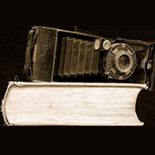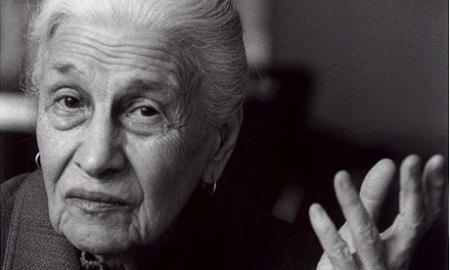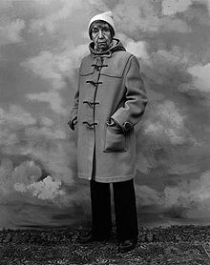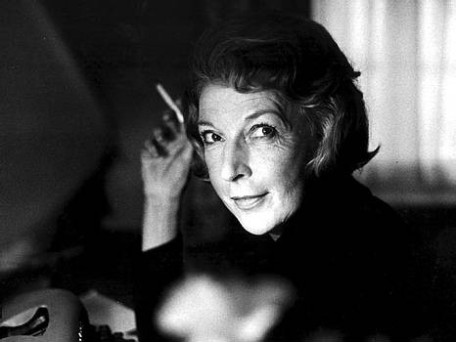R.I.P. Eve Arnold, and other feisty women (photo)journalists
Photographer Eve Arnold has died aged 99, three months short of celebrating her centenary. Arnold is most well-known for the intimate portraits she took of Marilyn Monroe over the course of a decade, but she did plenty of other powerful work too, including documenting South African black townships and life in the Soviet Union, and following Malcolm X and the Black Power Movement.
Portrait of Eve Arnold
Reading her obituary in The Guardian , I was reminded that many famous women photographers, especially those who’ve done social documentary work, have survived to a grand old age. Here’s a rundown, in order of longevity:
Eve Arnold, died in 2012 aged 99
Helen Levitt, died in 2009 aged 95
Berenice Abbott, died in 1991 aged 93
Imogen Cunningham, died in 1976 aged 93
Consuelo Kanaga, died in 1978 aged 84
Lisette Model, died in 1983 aged 82
Dorothea Lange and Margaret Bourke-White were younger when they died, 70 and 67 respectively, but I feel they would have lasted much longer if not felled by disease — esophageal cancer in Lange’s case, Parkinson’s Disease in Bourke-White’s.
What does it mean that these women lived so long? Naturally they were all tough broads: they needed to be to get ahead in what was largely a man’s business in the first half of the twentieth century. Several had difficult childhoods that made them crave independence from an early age. Dorothea Lange contracted polio at age seven, and felt betrayed when her lawyer father deserted the family and turned out to be a petty crook. Berenice Abbott’s father left the family when Abbott was five, then came back and kidnapped her older sister. Her mother then married someone who was, in Abbott’s opinion, “just a madman.”
Portrait of Berenice Abbott in 1979 , when she was 81
Here’s what some of them said about succeeding as a woman:
“I got hard pretty early… I knew the deck was stacked against women. My mother even told me this.” – Berenice Abbott
“Usually I was the only woman photographer, and the technique I followed was to literally crawl between the legs of my competitors and pop my head and camera up for part of a second before the competition slapped me down again.” – Margaret Bourke-White
“I’d never kill myself for a man. I wouldn’t do it for anybody.” – Imogen Cunningham
I think, also, about the women reporters who were active during the same period. Many of them were long-lived too: Martha Gellhorn at 89, Constance Larrabee at 86, Gloria Emerson at 75. (Numerous others died in combat.) In her recent memoir Ghosts by Daylight , war reporter Janine di Giovanni tells an amusing story about interviewing Gellhorn. Having traveled all day from London to a remote cottage in Wales to meet her heroine, di Giovanni was met by an elderly woman who eyed her suspiciously and said, “Don’t think you’re getting lunch, because you’re not.” When her article about Gellhorn was published, di Giovanni received a letter from its subject saying she hated the article, and calling di Giovanni a liar for describing the cottage as “light-filled.” Thanks, Martha! Graciously, di Giovanni concludes that Gellhorn’s flintiness was a necessary part of her armor. She writes, “That day I realized above all what she had: courage. I wanted a life like hers, courageous, free and unencumbered.”
Martha Gellhorn in 1965
Despite their tough exteriors, though, these women all had a keen sensitivity and interest in people. They also had the ability to transcend their own social class and empathize with the poor. Historian Linda Gordon writes about Lange’s “refusal to pass by uninvolved” and ability to “look at the poor as she had looked at the rich, never stereotyping.” Asked what kept her going so long, Arnold answered, “curiosity.”
Two years ago I reviewed Eve Arnold’s People , a handsome retrospective book published by Thames & Hudson. Here’s some of what I wrote:
“Arnold was interested in people from all walks of life, not just celebrities, and her curiosity drove her far afield. In the 1960s, she used her charm and smarts to get a rare visa to the Soviet Union, where she photographed such diverse subjects as nursery schoolchildren, a divorcing couple and a 110-year-old man. In the late 1970s, when she was 67, she undertook a physically grueling trip to China, where she spent six months documenting every aspect of life in the then-closed country. In that decade, she also traveled extensively around Arab countries to photograph veiled women for a series of eerily powerful portraits… A thoughtful, far-ranging retrospective book, Eve Arnold’s People is fulsome, moving and occasionally bawdy (as in an image of Vanessa Redgrave’s bare behind). It’s a testament to the empathetic eye and feisty spirit of a great photojournalist, one who just happened to be a woman.”
I hope Arnold’s feisty spirit is now knocking back a few otherworldly whiskies with Lange, Abbott, Gellhorn and Bourke-White. Can’t you see it?
8 comments on “ R.I.P. Eve Arnold, and other feisty women (photo)journalists ”
Leave a Reply
Connecting to %s





Nice essay Sarah. I’ll look forward to more.
These are all my heroines in photography. I still remember getting Eve’s book In China in 1981. I viewed it in awe several times.
I love your blog, “Theliteratelens” keep up the good work. Cannot wait to see the next one.
John Isaac/photographer.
Congratulations! This is a wonderful, thought-provoking piece. Looking forward to your next entry.
Would that we could all live such long and productive lives!
I look forward to reading more on your blog, Sarah.
Wonderful!
Fascinating stuff, Sarah! I look forward to future posts.
Really enjoyed the piece Sarah – makes me want to look at their work…and spread the news about your blog!
Excellent article, Sarah. Nice to think back about these amazing photographers, all of them great. You have done them a great service with your writing. Keep up the good work.